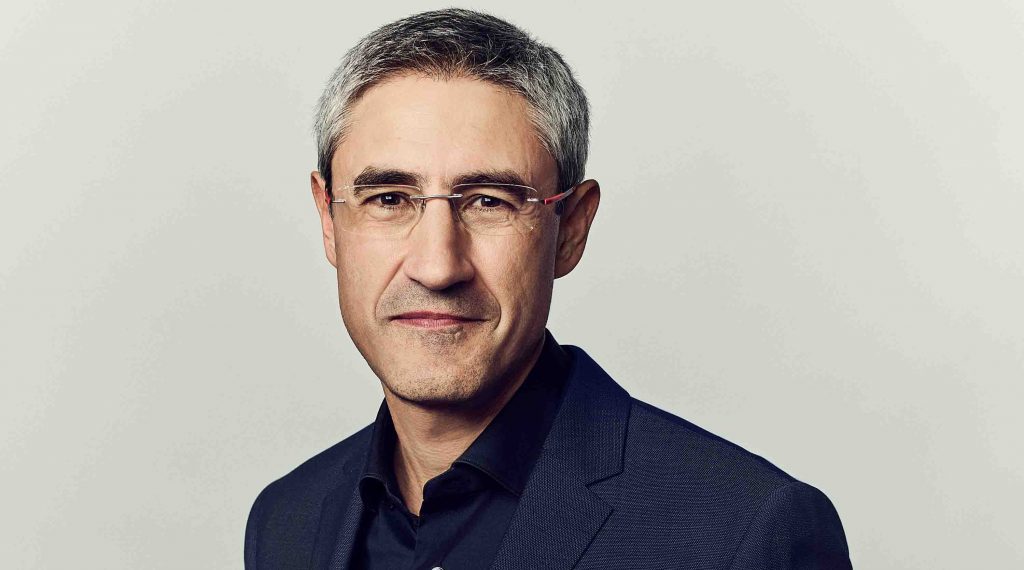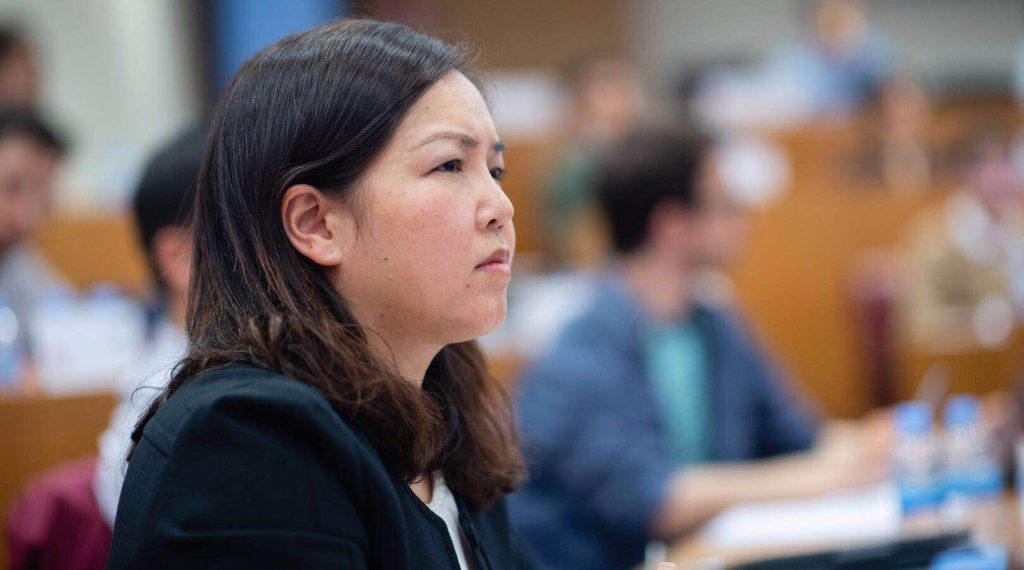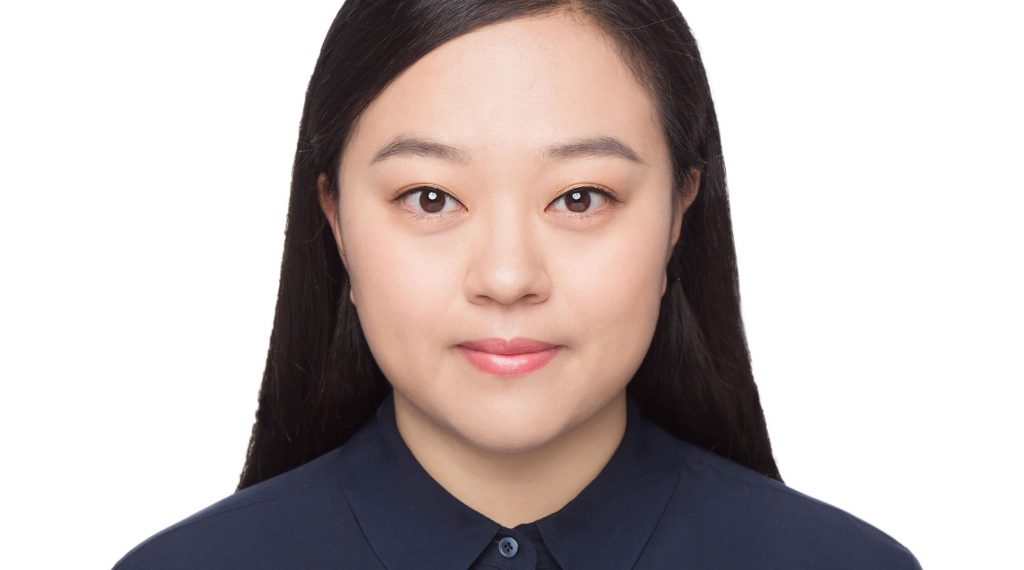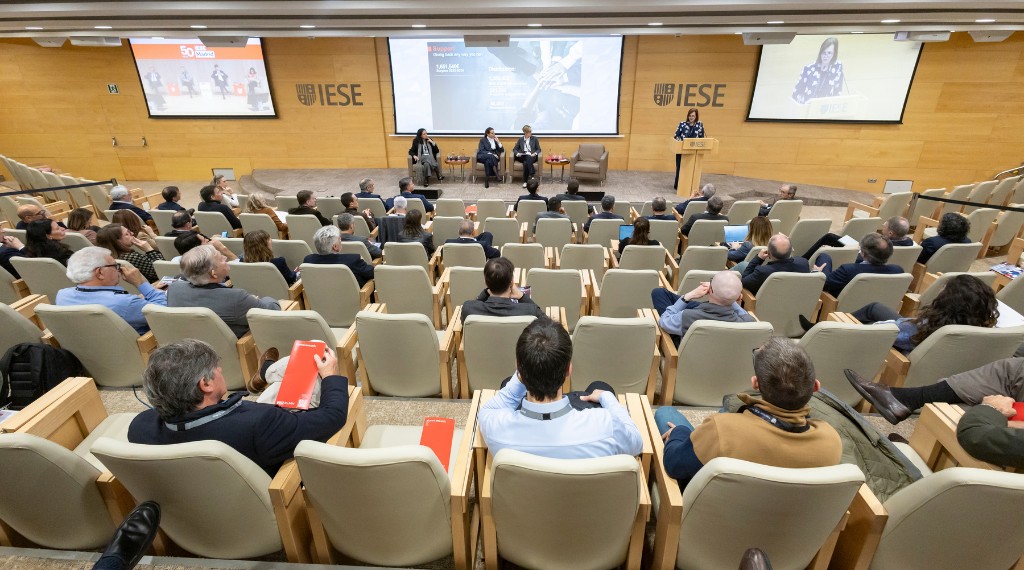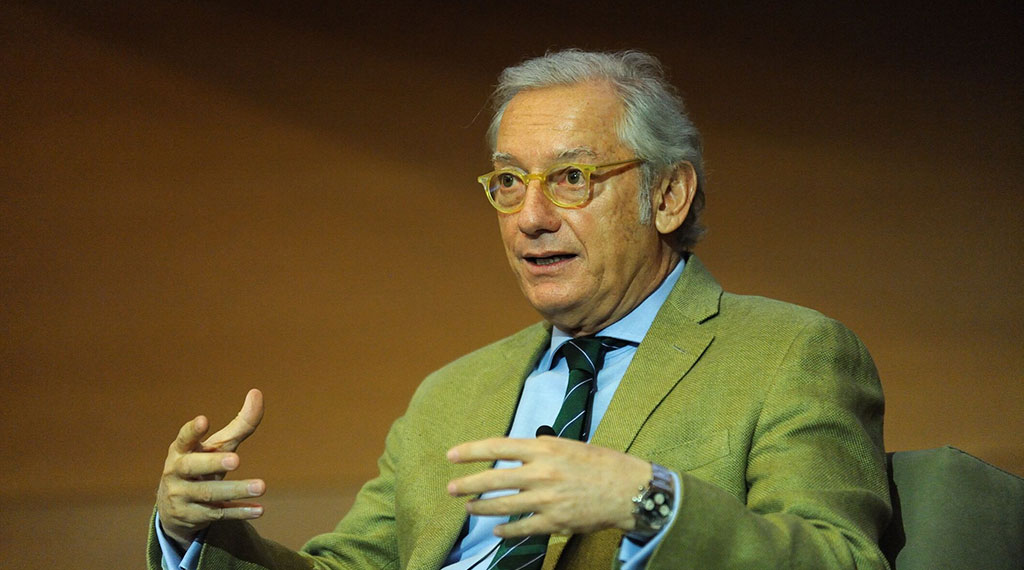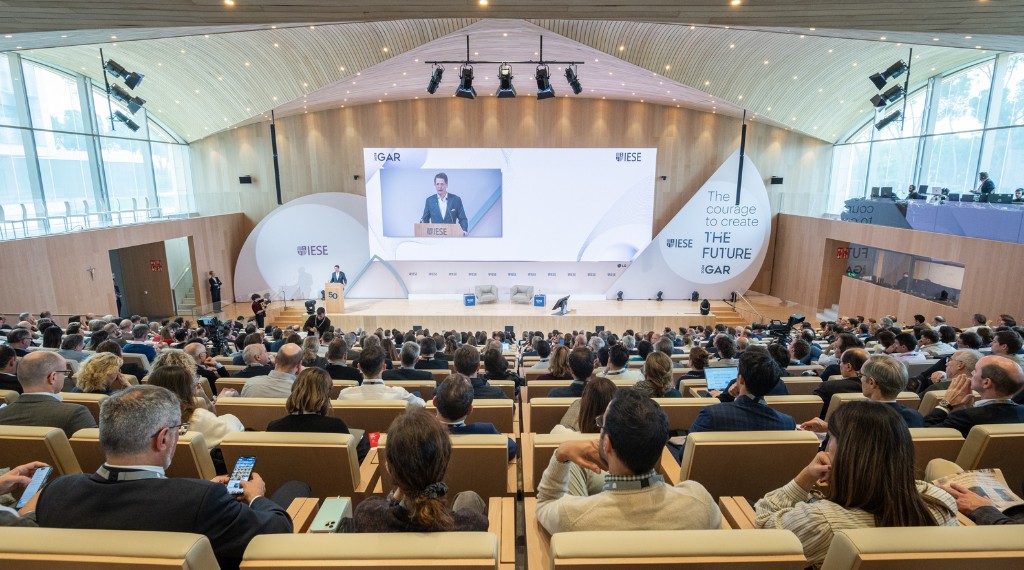Stories
United in action #NowMoreThanEver
Good news stories of IESE alumni stepping up to help during the coronavirus crisis
The global health emergency has reaffirmed IESE’s commitment to forging leadership grounded in solidarity, hope and improving the social good. Indeed, it is more important now than ever before.
April 24, 2020
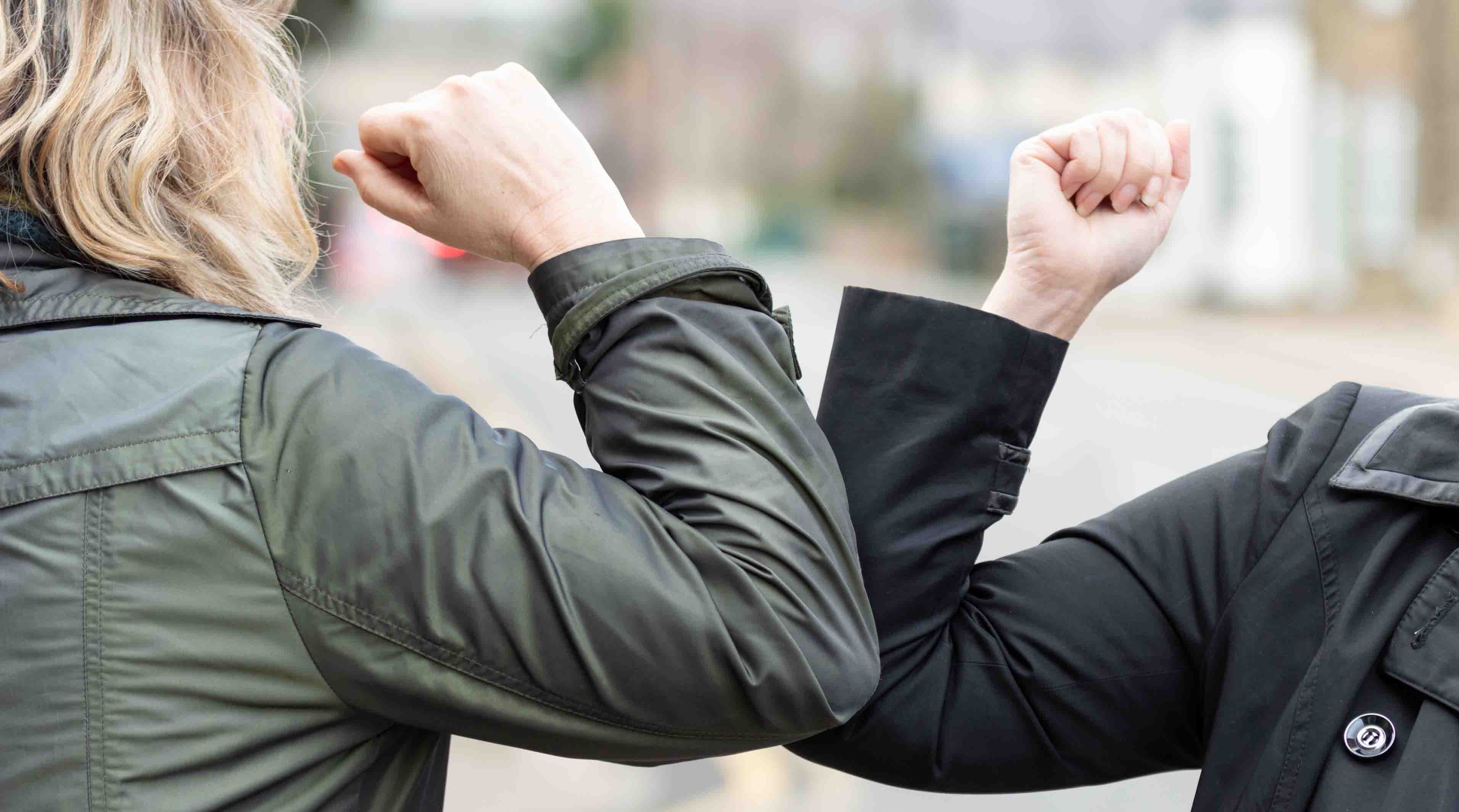
The coronavirus outbreak has also seen an outbreak of solidarity and positive action among the IESE alumni community. Here, we feature some inspiring stories that are representative of the many extraordinary efforts during these extraordinary times. Please continue to send your stories to the IESE Alumni Association so we can spread the good news and increase the impact.
Read more stories of how IESE alumni are doing their part to fight the coronavirus at www.iese.edu/community-covid19/
“Our motivation couldn’t be greater”
When Hewlett-Packard (HP) pushed to make 3D printing a key part of its business portfolio, Ramon Pastor (PDD ’01) couldn’t have imagined that their pioneering efforts would end up being used in the global fight against the coronavirus pandemic. But this is 3D printing’s great advantage: the technology is versatile enough to be used for any number of applications in very little time.
Work teams from HP’s R&D center near Barcelona – where Pastor, head of HP’s 3D printing division, is based – are working in close collaboration with their counterparts in Corvallis (Oregon), San Diego and Vancouver (Washington) to respond to growing requests from hospitals, medical professionals and industrial companies in all the regions of the world where HP operates.
“We study the requests and allocate them to different teams according to their nature, so the relevant team can gear up the machinery,” says Pastor. “Besides our own employees, who have really stepped up, a network of other companies, tech centers and volunteers has come together, willing to use their own 3D devices to print the materials that hospitals demand. We’re providing designs and technical advice, as well as lending our own 3D production capacity, to the collective effort.”
As soon as each design is validated by the relevant authority, HP works fast to scale production, so that thousands of the approved products reach hospitals on the frontlines. So far, HP has produced face masks, face shields, mask adjusters and hands-free door openers. It’s also working against the clock to test and validate a mechanical bag valve mask that can be used for emergency ventilation of COVID-19 patients. And nasopharyngeal swabs, FFP3 masks and ventilators are in development.
The challenge now is to set up more local supply chains for final assembly and distribution of products, which entails collaborating with each country’s authorities. “It’s a tremendous logistical challenge,” says Pastor, “but the motivation to achieve it couldn’t be greater.”
MORE INFO: Go to https://enable.hp.com/us-en-3dprint-COVID-19-containment-applications to find out how to produce critical parts to help meet urgent needs. Also, IESE’s Joan Jané has written a case study on “HP 3D Printing” which is available at www.iesepublishing.com/hp-3d-printing-2.html
“It’s important to be part of the solution”
Brian Ellison (MBA ’03) describes himself as someone “addicted to community building, who loves solving complex problems with elegant solutions.” With the coronavirus pandemic, the problem couldn’t be more complex. And the solution that he and two engineer friends came up with couldn’t be more elegant, as the trio worked together to design and produce 1,000 medically approved face shields for their local hospital in Madison, Wisconsin, in less than a week, and are now producing over 20,000 of their “Badger Shields” a week for hospitals and clinics around the region.
On March 16, Lennon Rodgers, who works in the innovation lab of the University of Wisconsin-Madison, got a call for help. The university hospital where his wife works urgently needed more face shields to protect medical staff treating COVID-19 patients. He enlisted the help of Jesse Darley, of the local design firm Delve, and Ellison, business development manager at Midwest Prototyping, which, as implied by the name, specializes in rapid prototype solutions.
Although the impetus was to solve a problem for their local community hospital, the trio made their design “open source,” posting everything online with instructions, material lists and sourcing contacts, so that anyone could download the design and create their own face shields to meet their own local demand.
Ford Motor Company is one of the biggest companies to take up the charge. With auto production on hold, Ford is now mass-producing hundreds of thousands of the face shields. Other manufacturers across the United States are downloading the design as the number of coronavirus cases rises in every state, and demand for medical gear outstrips supply. Toyota, Nike and Apple, combined with Ford, now produce over 1.5 million face shields a day.
While Midwest will manufacture the shields for customers, the beauty of their solution is that anyone with a laser cutter, stapler, scissors and three readily sourced supplies (elastic headbands, foam and clear plastic) can make the shields for themselves.
“While this pandemic is global, it’s important to be part of the solution at the local level,” says Ellison. “We hope more manufacturers, maker spaces and handy families will use this design to help make shields for their hospitals and healthcare workers.”
MORE INFO: To purchase or make your own Badger Shields, go to www.midwestproto.com/badgershield or https://making.engr.wisc.edu/shield
“We’re all in this together”
For two Chinese businesswomen studying in Europe, watching the coronavirus spread across the continent has been distressing but also a call to action to unite people around the world in a common cause.
Julia Zhou, managing director of Grupo Mandarin, is an Executive MBA participant in IESE Madrid. She took to WeChat, the Chinese social messaging app, to raise funds for supplies in Spain. From just three WeChat groups, she raised enough to ship 40,000 surgical masks from China to Spain. And a separate initiative among the Chinese community in Spain raised funds for another 40,000.
Meanwhile, Ge Wang, CEO of Himmuc Information Technology Co., is doing the Executive MBA in IESE Munich. She leveraged Chinese company contacts to arrange donations of surgical masks to Italy. “It was painful to watch Italy experiencing what China had just gone through,” she says. So far, she has managed to arrange donations of over 100,000 masks and other medical supplies to several Italian cities as well as to Madrid, the epicenter of the crisis in Spain.
Besides the practical aid, Wang also wanted to do something to lift people’s spirits. “I’ve been in Germany for more than 10 years. Europe is like my second home,” she says. “Love knows no borders. And as IESE teaches us, it’s my social responsibility to help others.”
As Italy went into lockdown, schools closed and children were thrust into a frightening new world in which they were no longer allowed outside. Wang was getting calls from Chinese families wanting to help the kids in Italy because for many children in China, this had been their reality for several weeks already.
She got various kindergartens and primary schools in China to get their kids to draw pictures for the kids in Italy. Many of the pictures depict China and Italy united against the virus, with positive images of rainbows and cherry blossoms. They sent videos to cheer the others on. One Italian city intends to exhibit the artwork in its town hall when restrictions ease.
“Italy is one with us,” says one girl in a message of support. For Wang and Zhou, too, we are all in this together.
MORE INFO: Wenchun.Zhou@iese.net and Ge.Wang@iese.net
These good news stories are featured in IESE Business School Insight #155.
